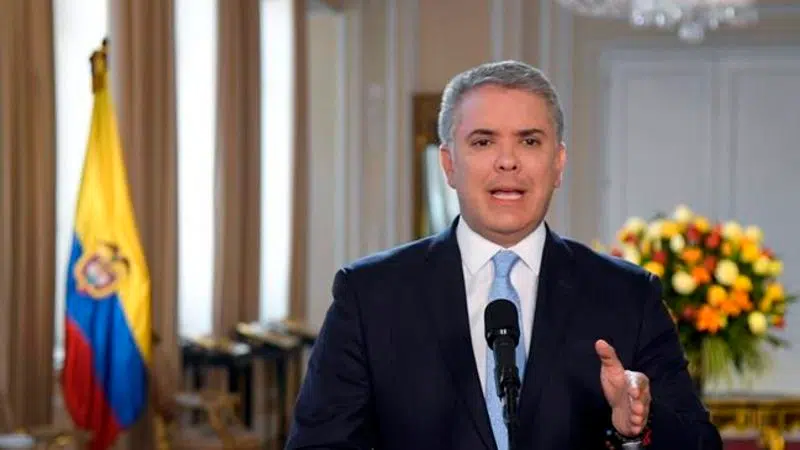
Colombia FARC negotiators say they are taking up arms again
BOGOTA — Colombian President Ivan Duque offered a nearly $1 million reward for the arrest of the top peace negotiator for the Revolutionary Armed Forces of Colombia on Thursday after the rebel and a small cadre of hardliners vowed to resume their insurgency in a major reversal for the country’s efforts to end decades of bloody fighting.
In a televised address, Duque also accused Venezuela’s socialist leadership of providing safe haven to the rebels — underscoring the risks to regional stability from the rebels’ shock announcement they would rearm.
In a video published after midnight Thursday, Luciano Marin appeared alongside some 20 heavily armed insurgents dressed in camouflaged fatigues condemning the conservative Duque for standing by as hundreds of leftist activists and rebels have been killed since demobilizing as part of the peace deal.
“When we signed the accord in Havana we did so with the conviction that it was possible to change the life of the most humble and dispossessed,” said Marin, better known by his alias Iván Márquez, in the more than 30 minute video. “But the state hasn’t fulfilled its most important obligation, which is to guarantee the life of its citizens.”



